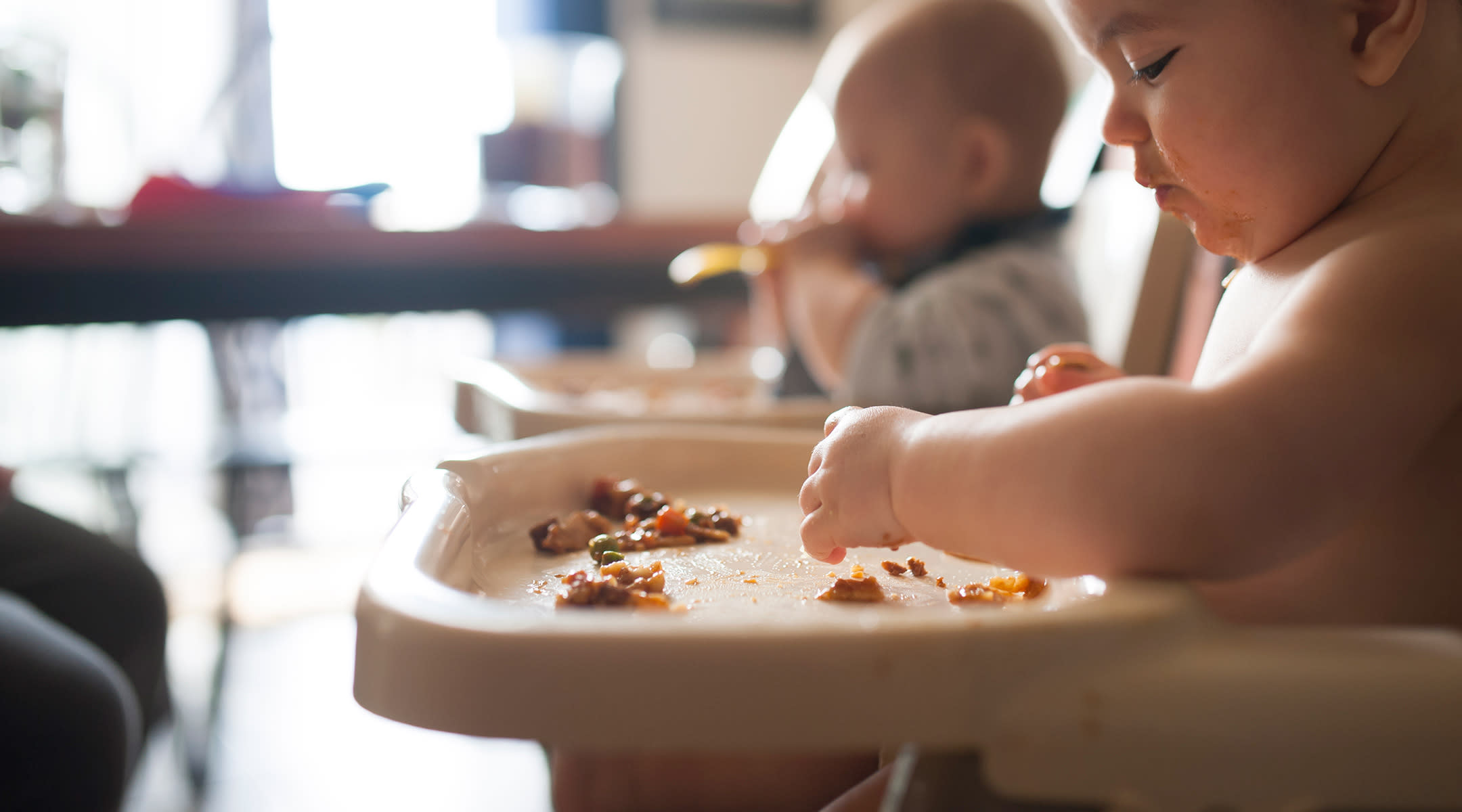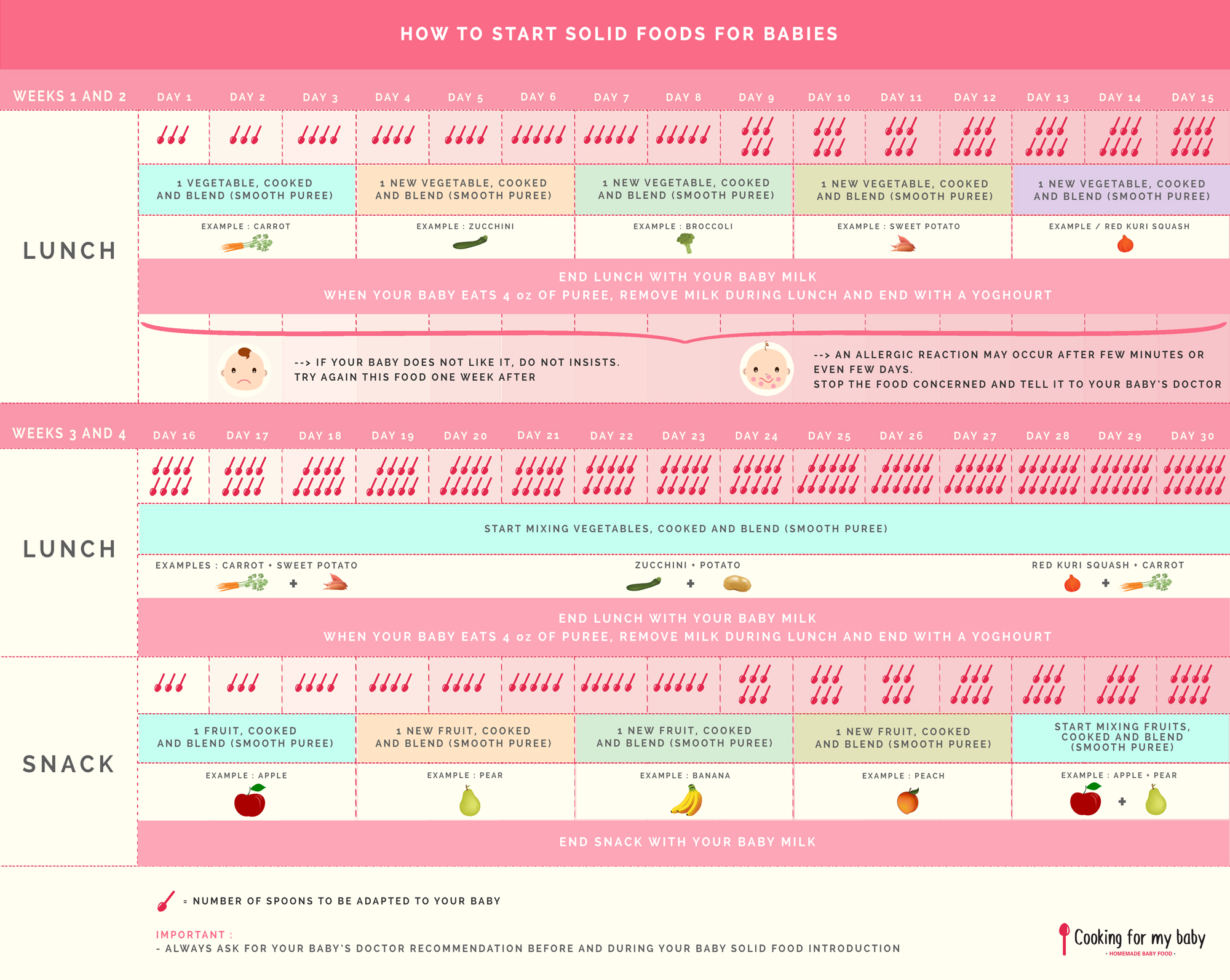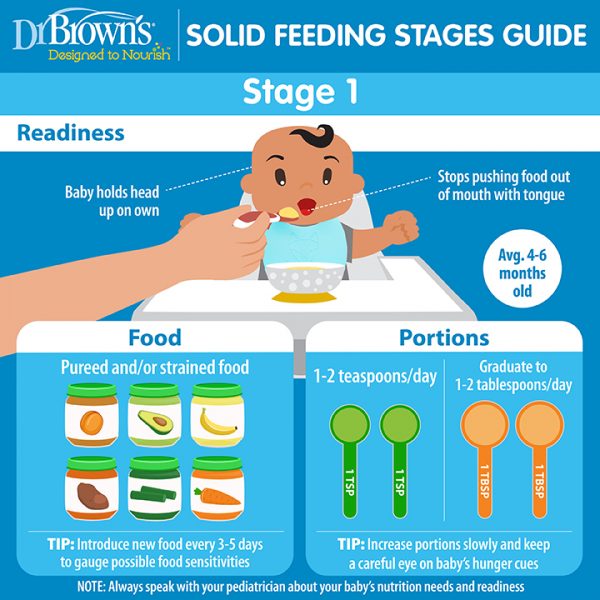Neat Info About How To Start Solid Food For Babies

When they are nearly full, give them one or two teaspoons of dry cereal, mixed with enough formula, breast milk or water to make a soupy liquid.
How to start solid food for babies. Ability to sit up alone or with some support. At 6 months, start giving your baby just two to three spoonfuls of soft food, such as porridge, mashed fruits or vegetables, twice a day. Traditionally, pediatricians have recommended starting with thin fruit or vegetable purees or baby cereals, and then gradually advancing in texture to soft finger foods, like pliable pieces.
Cereal, fruits, veggies and finger foods and puree — all the new tastes and textures in store for your baby! At this time, most babies have developed the necessary skills and coordination to. Getting started with solids:
Over the next weeks and months, your baby can move on to roughly mashed or minced foods and then chopped foods. At the beginning, how much your baby eats is less important than getting them used to the idea of eating. Your baby needs a variety of food textures.
Peas and other green vegetables may turn the stool. How to start solids: Here's when and how to introduce new flavors, plus which foods to avoid until your baby turns 1.
Gradually increase to 1 to 2 tablespoons. First solids should be finely mashed and smooth, then graded to coarsely mashed quickly. Baby feeding how to introduce your baby's first food introducing solids to your infant is an exciting milestone.
As your baby gets increasing amounts of solid foods, they should continue to get the same amount of breastmilk. According to the centers for disease control and prevention (cdc), these developmental steps include: When your baby is ready for solids, first foods might be smooth or finely mashed, depending on what your baby likes.
Our app is here to guide you every spoonful of the way. Here's everything you need to know about baby's first food including. During this time babies typically stop using their tongues to push food out of their mouths and begin to develop the coordination to move solid food from the front of the mouth to the back for swallowing.
Offer your baby their usual breast milk or formula. Your milk remains the single most important food in your baby’s diet until their first birthday. Up until then, breastmilk or formula should be their sole source of nutrition (and if you start solids between 4 and 6 months, the food will not be intended to substitute for milk in providing any nutrition—it is developmental in purpose).
Additionally, your baby is more likely to show interest in new foods if they are not ravenously hungry. Embarking on the journey of introducing solid foods to your baby can feel like navigating uncharted waters. Your baby may only take a spoonful at first, but this will increase with time and practice.
Nurse your baby before offering other foods. A guide to starting your baby on solid food. Because of the added sugars and fats, they will have a much stronger odor, too.









![When to Introduce Certain Foods to Baby [Infographic] Baby](https://i.pinimg.com/originals/6a/54/6d/6a546d51aef0789ece27e09a310b981a.jpg)





![Introducing Solids A Month by Month Schedule [Free Printable] Baby](https://i.pinimg.com/originals/58/ad/20/58ad20e55803f267a8f14b0c254e70cc.jpg)


